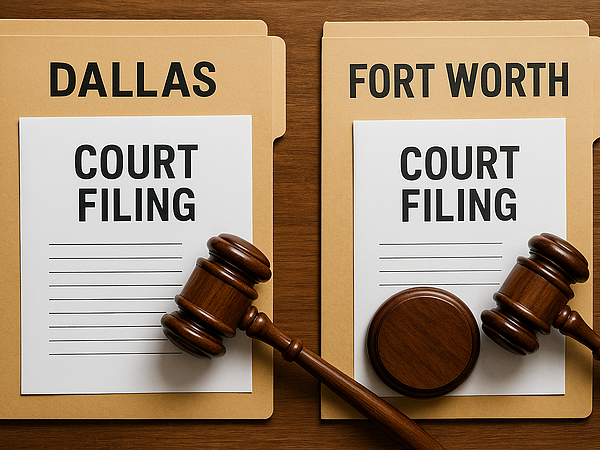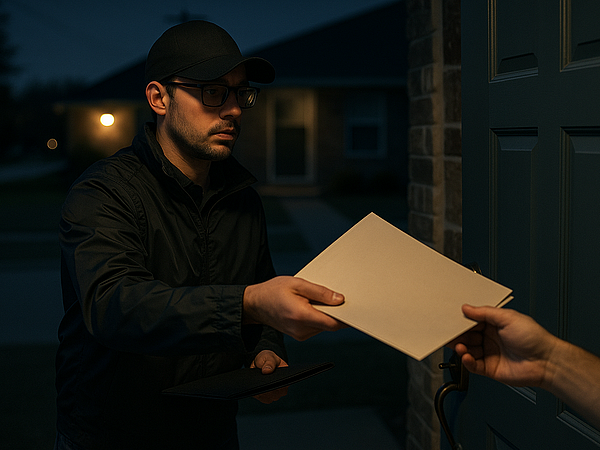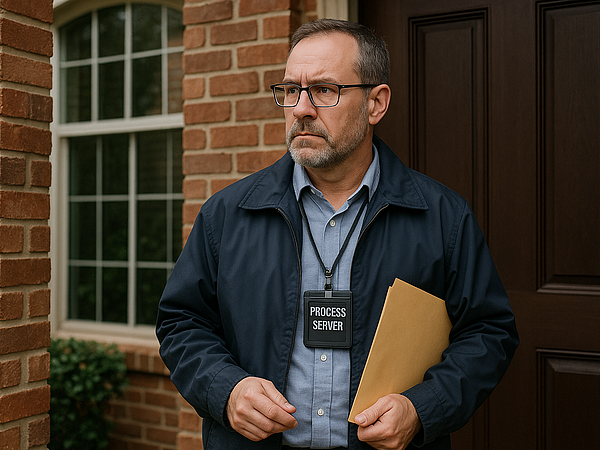By using our website, you agree to the use of cookies as described in our Cookie Policy
The Basics of Court Document Retrieval in Fort Worth
Most people think pulling court records is just a matter of walking into a building and asking nicely. It's not. Fort Worth legal records retrieval involves knowing which courthouse holds what, understanding access rules, and navigating a system that doesn't always make things easy. Miss one step and you're looking at delays, rejected requests, or incomplete files that won't hold up when you need them.

So here's what matters. If you're chasing down certified court records in Texas, you need more than a case number and good intentions. You need to know where the documents live, how to request them properly, and what it's going to cost in both time and money. Every record has a trail. Every request needs precision. And every misstep can cost you more than just a wasted trip downtown.
Types of Records Available
Fort Worth courts hold more than just case files. You've got civil filings, criminal records, probate documents, family law orders, and property disputes all sitting in different systems. Some are public. Some are sealed. And some require a court order just to see the index. The type of record you're after determines where you go and what hoops you'll jump through to get it.
Civil cases are usually the easiest to access. Criminal records can be trickier, especially if they involve juveniles or expunged charges. Family law documents often have restricted access to protect privacy. And probate records? Those are public, but they're stored separately and require their own request process. If you're not sure what category your document falls into, you're already behind. Knowing the difference between a certified copy and a plain copy matters too — one holds up in court, the other doesn't. That's why understanding records retrieval is critical before you even start the process.
Where Records Are Stored
Fort Worth court documents don't all live in one place. Civil and family cases are handled through the Tarrant County District Clerk's office. Criminal cases go through the Criminal District Clerk. Probate records sit with the County Clerk. And if you're looking for older files or archived cases, you might be sent to a separate records facility altogether. Each office has its own hours, its own request forms, and its own rules about what you can access and how.
Requesting Certified Copies
You can't just photocopy a court document and call it official. Certified copies come with a raised seal and a clerk's signature, and they're the only version that counts when you're filing motions, appealing decisions, or submitting evidence. To get one, you'll need to fill out a request form, provide the case number and party names, and specify exactly which documents you need. Vague requests get rejected. Incomplete forms get sent back. And if you're working on a tight deadline, that's time you don't have to waste. Many attorneys rely on professionals who handle process service and records work daily to avoid these kinds of delays.
Costs and Fees
Nothing's free when it comes to court document requests in Fort Worth. Certified copies run about a dollar per page, plus a base fee for the certification itself. If you need multiple documents from different cases, those fees add up fast. Rush requests cost more. Copies of exhibits or bulky files can hit triple digits. And if you're ordering records by mail, expect to pay for postage and processing on top of everything else.
- Standard certified copy fee is typically $1 per page plus a certification charge
- Expedited requests may double the cost depending on the clerk's office
- Payment methods vary — some offices take cards, others require cash or money orders
- Remote requests often require prepayment before documents are mailed
If you're pulling records for multiple cases or need a high volume of documents, the costs can catch you off guard. Budget for it upfront. And if you're working with a legal team, make sure someone's tracking what's been requested and what's still pending. Duplicate requests mean duplicate fees, and nobody wants to pay twice for the same file.
Processing Time
Walk-in requests at the Fort Worth clerk's office can sometimes be handled same-day if the file is recent and readily available. But if the case is older, archived, or involves sealed records, you're looking at days or even weeks. Mail-in requests take longer — figure at least a week for processing, plus shipping time. And if there's any issue with your request form or payment, the clock resets. Rush service exists, but it's not guaranteed and it costs extra. If you're on a deadline, don't assume the system will move fast just because you need it to. Planning ahead is the only way to avoid last-minute scrambling, which is why many legal professionals turn to experts in retrieving legal records who know how to navigate the system efficiently.
Access Restrictions
Not every court document in Fort Worth is open to the public. Sealed cases, juvenile records, and certain family law files are off-limits unless you're a party to the case or have a court order. Even public records can have redacted sections to protect sensitive information like social security numbers or financial account details. If you're requesting records on behalf of someone else, you may need a signed authorization or proof of legal representation. Show up without the right paperwork and you're walking out empty-handed.
- Sealed records require a motion to unseal and a judge's approval
- Juvenile cases are almost always restricted to parties and their attorneys
- Adoption records are confidential and require a court order to access
- Expunged cases won't show up in public searches and can't be retrieved without legal authority
- Some civil cases involving minors or protected parties have limited access
Access rules exist for a reason, but they can be a headache when you're trying to build a case or verify information. If you hit a wall, don't assume the record doesn't exist — it might just be restricted. That's when you need someone who knows how to file the right motions and work through the legal channels. Professionals who handle legal requirements in Texas deal with these restrictions daily and know how to get around them legally.
Getting Records Without the Runaround
Pulling court documents in Fort Worth isn't rocket science, but it's not as simple as people think either. You need to know where to go, what to ask for, and how to prove you're entitled to see it. Mess up the request and you're back at square one. Wait too long and you've blown your deadline. The system doesn't care if you're in a hurry or if you didn't know the rules. It just keeps moving, with or without you.
At North TX Civil Process, we handle fort worth legal records retrieval every day. We know which clerk's office holds what, how to request certified court records in Texas without the back-and-forth, and how to get documents fast when time matters. Our team provides fort worth process service support and legal file access in Fort Worth for attorneys, businesses, and anyone who needs public records without the hassle. Call us at 682-409-4415 or request records retrieval now to get started.
‹ Back








